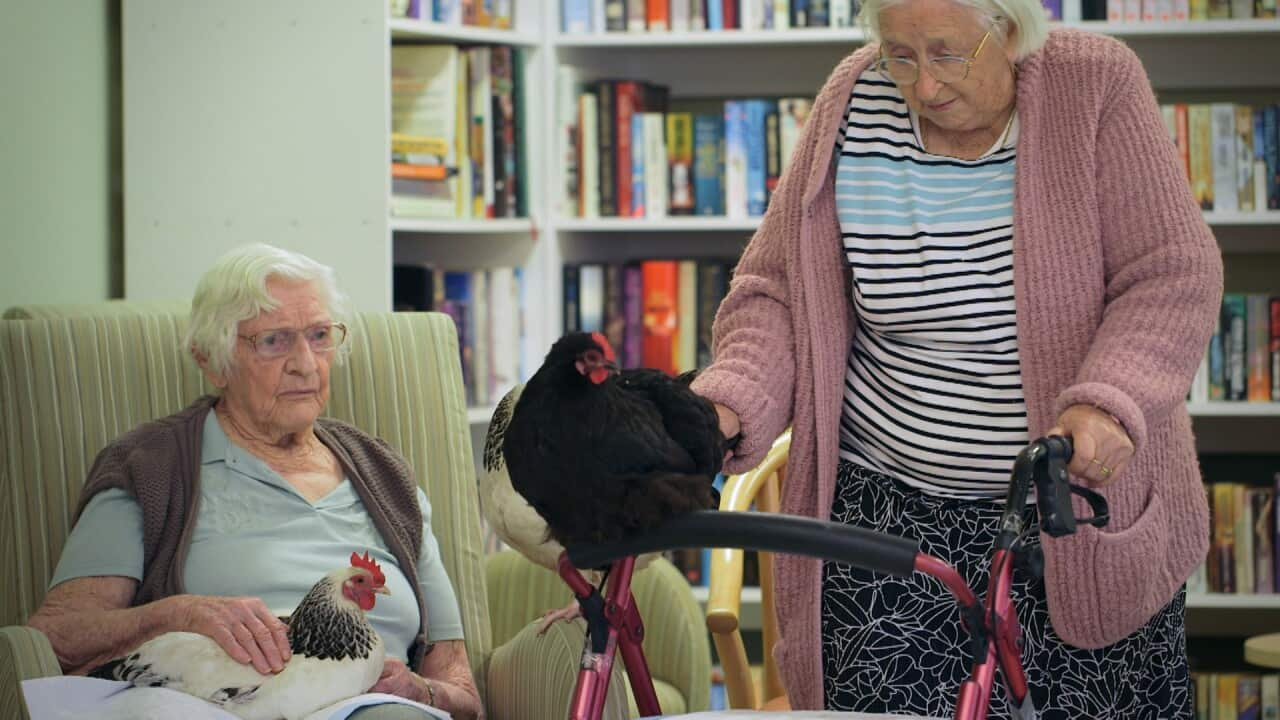We've all heard of therapy dogs. Or, heck, even therapy chickens.
These animals have long been used to provide emotional comfort for patients suffering from mental health, motor neurone diseases and dementia.
Yet here are 12 less-celebrated critters who are also helping out in a big, cuddly way.
1. Boa Constrictor
In 2009, Daniel Greene trained a to give him a "hug" when he felt a seizure coming on. Greene claimed the boa, named Redrock, warned him when he was in danger of having a fit. 2. Camel
Kazzy the Camel is a Wyoming, US based Bactrian Camel that visits young children and the elderly to cheer them up. At over 900 kilograms, it may seem unlikely such a big animal would be safe around our more vulnerable members of society, but which host Kazzy claim: "she loves babies in strollers and folks in wheelchairs, putting her head gently in their lap. And she loves to give kisses." 3. Ferret
in Los Angeles offers therapy ferrets for schools, nursing homes and hospitals. Ferrets are ideal for therapeutic service because they are small, can be litter-trained, are social and attentive. They can also be handled by small children and do not stress easily from travel. 4. Pig
A in Florida was used to provide emotional support for Kason Ray, a young boy with Down's syndrome. The pig was recommended for Kason since the boy's father was allergic to typical service animals like dogs or cats. 5. Llama
A in Canberra called Forest Gump has made a name for itself by frequenting nursing homes in the area. Owner Nils Lantzke says Forest Gump was born with complications that deprived him of oxygen. As a result, the llama has mild brain damage which only adds to his docile nature. 6. Monkey
Trained capuchin monkeys have been used to assist people suffering from spinal cord injuries and mobility impairment. The not-for-profit championing this form of animal-assisted therapy is , a US-based service organisation. The monkeys help patients by reaching for things they wouldn't otherwise be able to grab and provide companionship. 7. Goat
An organisation in Birmingham, Alabama called provides animal-assisted therapy primarily in the form of dogs. But in 2014, one local community member who raised pygmy goats donated them to Hand in Paw to be trained as service animals. The goats provide all the same benefits dogs provide for patients. 8. Dolphin
Some studies show can alleviate Down's syndrome, epilepsy, autism and learning disorders. Through a series of exercises with the dolphins, children and adults can not only relax but develop key skills needed to help manage their disorders. Clinical hypnotherapist Judith Simon Prager the high frequency clicks and grunts that dolphins use to communicate with each other have the ability to directly alter brain waves in humans. 9. Horse
Also known as , horses have long been seen to help patients suffering from neurological disorders, addictions and PTSD. Some forms of equine-assisted therapy include horseback riding to help develop coordination and muscle tone, hippotherapy which combines various elements of speech and movement exercises and equine-assisted psychotherapy. 10. Fox
Lyon Ranch is also home to a . A fennec fox named Kiwi was used to calm a 4-year-old boy who entered John Muir Medical Centre in California crying hysterically. After handling the fennec fox, who fell asleep on the young boy's lap, the boy re-entered the medical centre completely calm and at ease. 11. Parrot
Parrots have been known to help people with bipolar disorder. claims his parrot allowed him to calm down when he broke into a violent episode. After hearing him tell himself to "calm down", his parrot began repeating the same words back to him, breaking him out of his frenzied state. 12. Elephant
Special needs children in Thailand are aided in their development with . The children take rides on the elephants, wash them, scrub them and play ball games with them. Each activity is designed to instill certain key skills within the children and to build their confidence. The program also highlights the importance of elephant conservation. 














